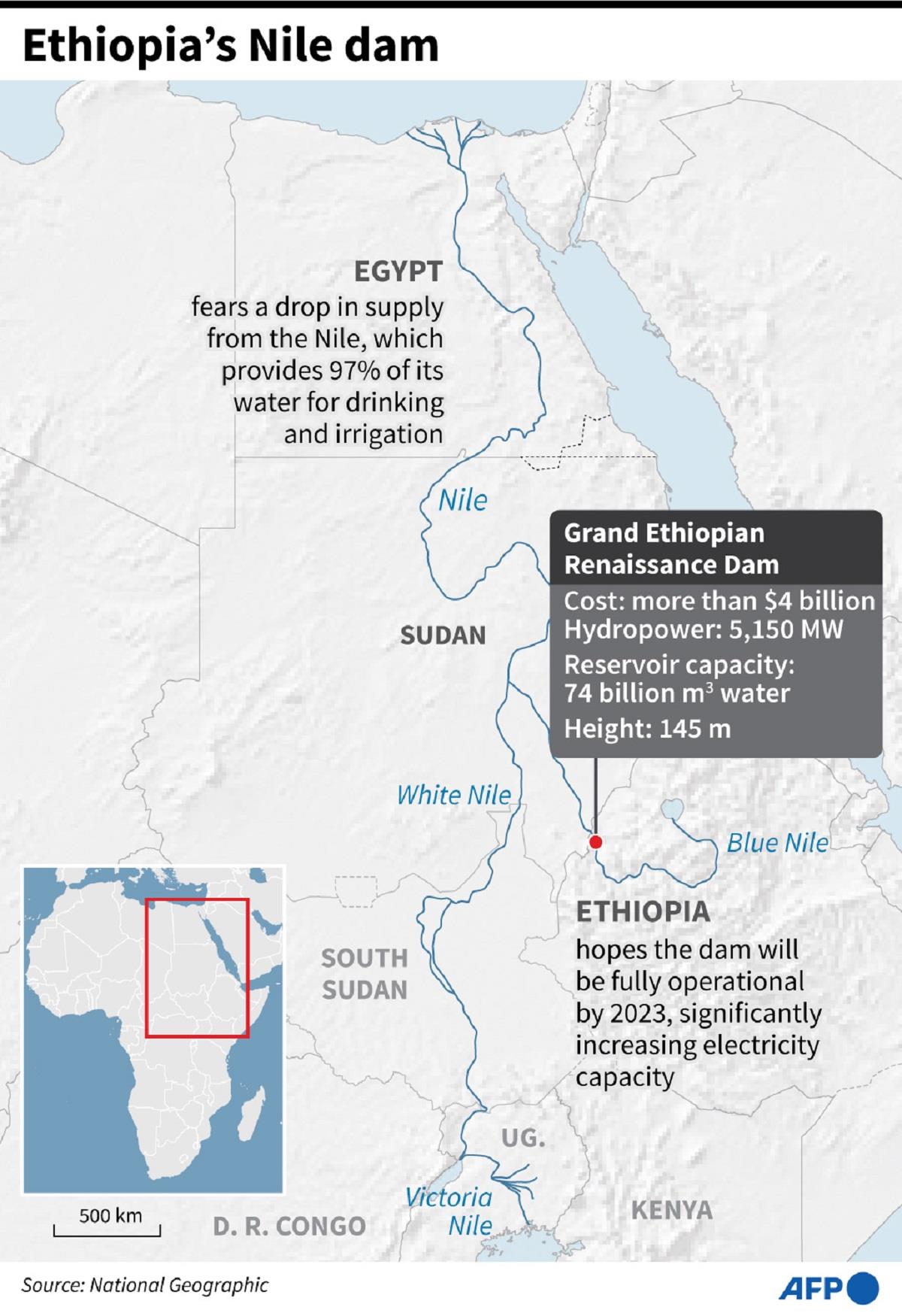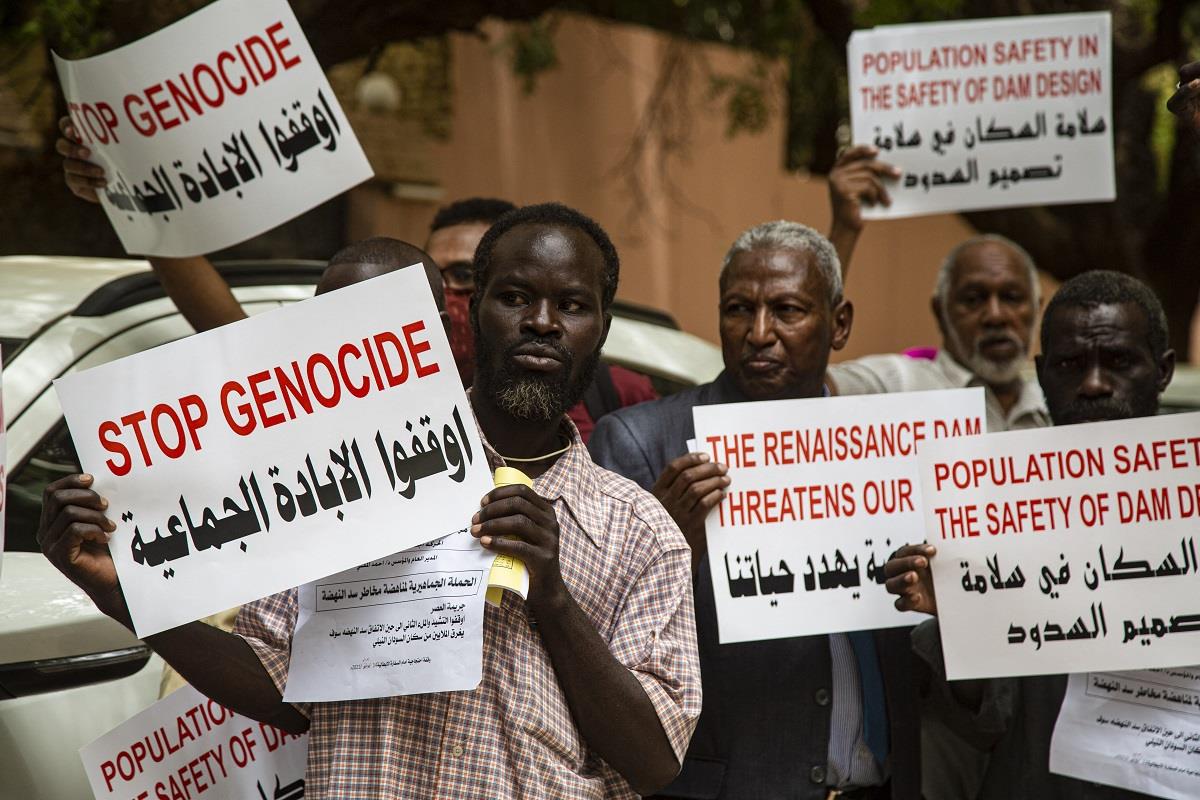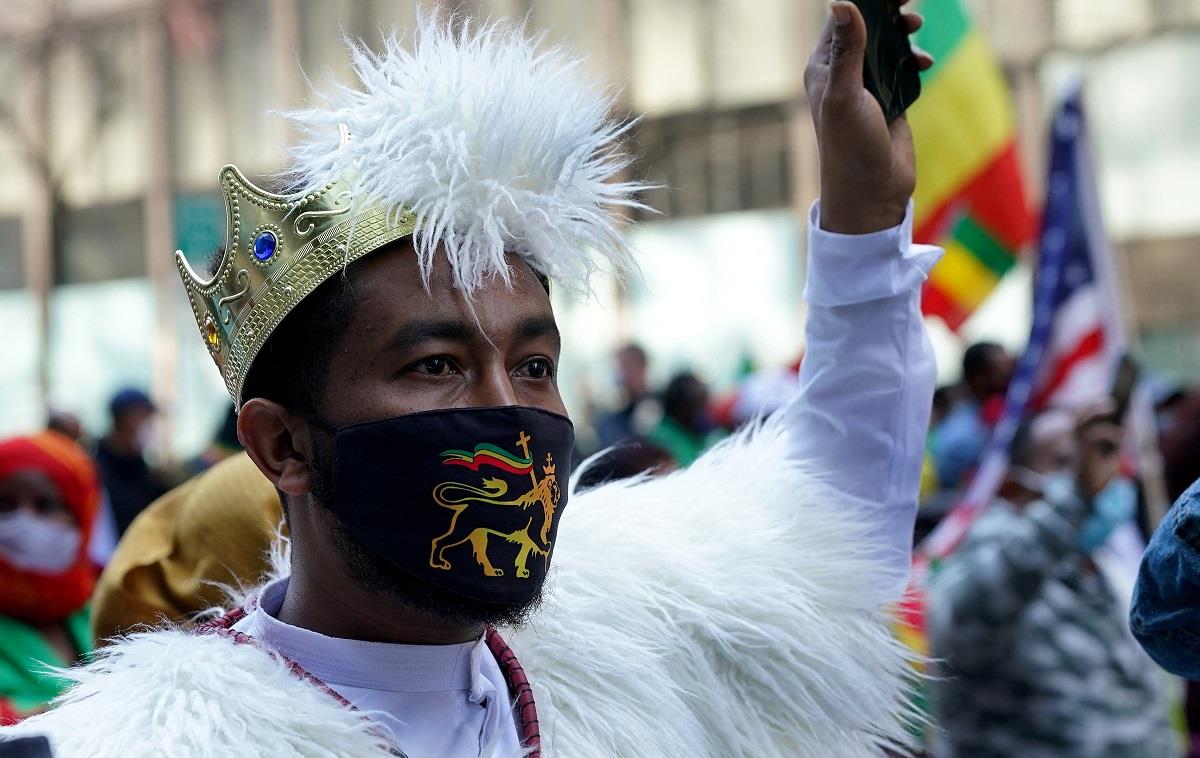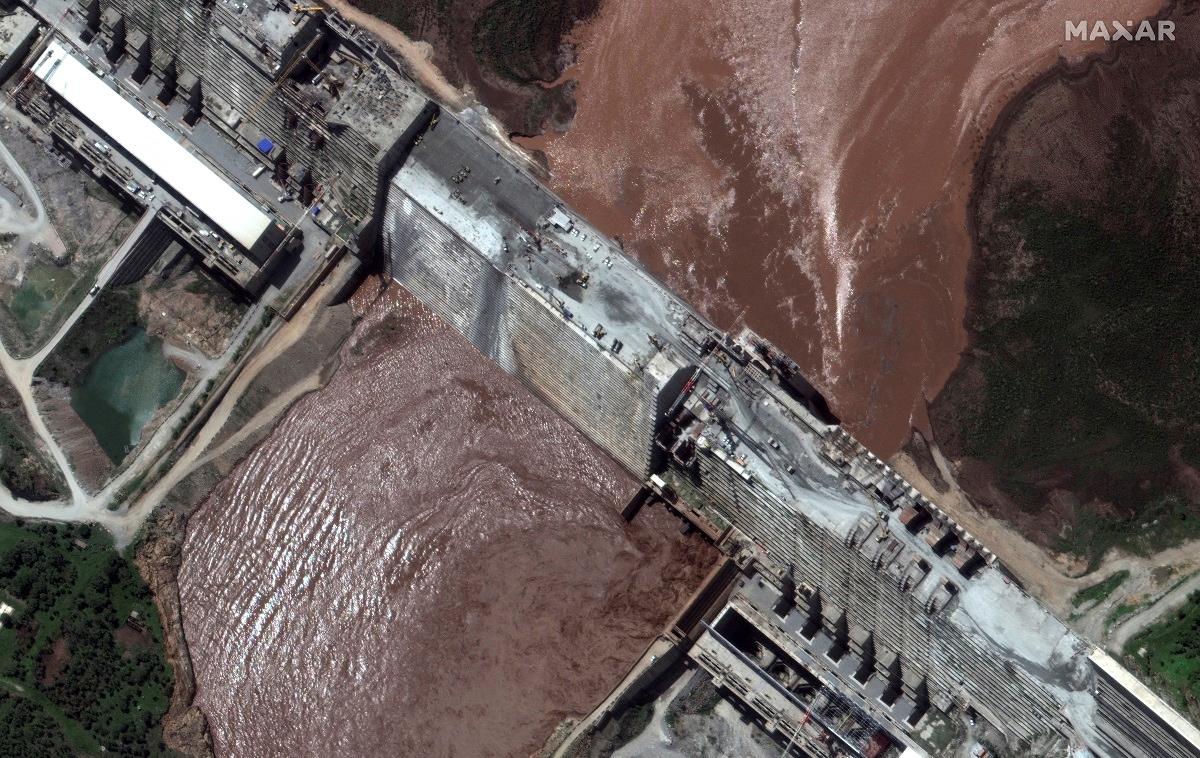(MENAFN- Asia Times) When news broke on July 19 that the giant reservoir behind the Grand Ethiopian Renaissance Dam (GERD) was now filled with Blue Nile water, many Ethiopians were elated.
“Congratulations to Ethiopia and friends of Ethiopia,” tweeted the country's Water Minister, Seleshi Bekele, describing the $5 billion dam as a“guardian infrastructure asset for the downstream countries,” as well as an engineering triumph.
Yet, for many citizens of those downstream countries – Sudan and Egypt – the news was greeted with far less enthusiasm. Indeed, both Cairo and Khartoum have been protesting vociferously over the dam, fearing that it threatens their access to vital Nile river waters.
China, a major investor in all three countries, has the economic clout to bring the parties together but faces major risks if it tries.
“Egypt, a nation of a 100 million-plus population, is facing an existential threat posed by the construction of a giant entity on the artery that gives it life,” Egyptian Foreign Minister Sameh Shoukry told a UN Security Council session on July 9.
Egyptian President Abdel Fattah al-Sisi added on July 18 that, “Egypt is unwavering in its determination to protect its historical right to its water share from the Nile.”
There have even been calls in the Egyptian parliament to bomb the dam, while Egyptian social media continues to show widespread outrage and anger at Ethiopia's fait accompli.
Yet, for all the rhetoric, Cairo's options for action are extremely limited.
“Sisi and his allies don't really have any good cards to play,” William Davison, senior analyst for Ethiopia with the International Crisis Group, told Asia Times.

With the dam wall now holding back millions of gallons of water, a military strike would be catastrophic for the downstream countries.
This leaves diplomacy as Al-Sisi's only card – and one that he has recently been actively playing.
Indeed, when he spoke of Egypt's“determination” on July 18, it was to Chinese Foreign Minister Wang Yi that he was talking in the Egyptian Mediterranean resort town of El Alamein.
“The Chinese factor in all this is a very important one,” Ashok Swain, UNESCO chair on International Water Cooperation at Upsala University, told Asia Times.
This is because Beijing has major investments in Ethiopia, Egypt and Sudan, giving it potentially powerful leverage in the dispute.
Yet, whether or not Beijing will want to use that power remains highly contentious, with potentially much to be gained – or lost – in the process.
Water wars
The hydroelectric GERD lies across the Blue Nile, which rises in Ethiopia and accounts for around 85% of the water that eventually flows through the River Nile downstream in Sudan and Egypt.
Use of this water is currently governed by two treaties, dating from 1929 and 1959. Under these, almost all the Nile's flow is assigned to Egypt, with a lesser amount to Sudan and almost nothing to Ethiopia.

Sudanese demonstrators in Khartoum protest against the Italian company which built the Grand Ethiopia Renaissance Dam. Photo: AFP / Mahmoud Hjaj / Anadolu Agency
Addis Ababa argues that nowadays, this is clearly unfair.
Use of these waters for the GERD and elsewhere is vital, Ethiopia says, in its efforts to rise out of poverty.
Indeed, around one-fifth of the country's 109 million people still live on less than $1.90 a day, according to the most recent World Bank figures.
The dam – scheduled to be Africa's largest when finally complete – will be able to generate some 6.45 gigawatts of electricity, powering up both Ethiopia's domestic economy and that of its neighbors via electricity exports.
Yet, many millions of Egyptians – and increasingly, Sudanese, too – depend on Nile water for their livelihoods, with Cairo and Khartoum concerned that the dam will cut this supply, particularly in times of drought.
Recent years have thus seen repeated efforts to negotiate a new agreement for water sharing between the three countries, under African Union, UN and other international auspices.
All these efforts have, however, failed to find a solution – while the dam has inched ever closer to completion.
Enter the dragon
While much of GERD's financing has come from public subscription and taxes on overseas Ethiopians, much has also come from foreign loans. In 2013, China advanced $1.3 billion to the country to build transmission lines from the dam.

Protestors march down 42nd Street in New York during an“It's my Dam” protest on March 11 in which Ethiopians unite around the Nile River mega-project. Photo: AFP Timothy Clary
Chinese companies, such as China Gezhouba Group and Voith Hydro Shanghai, have also been involved in GERD's construction.
Overall, too, China is the largest source of foreign direct investment for Ethiopia, according to the UN, accounting for around 60% of all new, foreign-funded projects in the country in 2019.
That year, too, around half of Ethiopia's entire foreign debt – some $16 billion – was owed to China.
At the same time, Chinese investment in Sudan and Egypt is also substantial.
In Sudan, China Harbour Engineering is behind the Belt and Road Initiative $141 million Haidob port on the Red Sea, with further Chinese investments in agriculture, mining and petroleum.
In Egypt, Chinese banks are financing some 85% of the $3 billion new administrative capital, being built outside of Cairo, where the Chinese State Construction and Engineering Company is one of the main contractors.
In 2019, too, China had a record $7 billion of investments in Egypt, 90% of it coming in the previous five years.
Difficult engagement
This potentially gives China major economic leverage with all the participants in the GERD dispute.

The Grand Ethiopian Renaissance Dam as seen from space on on July 11, 2020. Photo: AFP / Maxar Technologies
At the same time, too,“While traditionally China tries not to get involved in local politics, there are plenty of signs now that with so many investments at stake here, China itself is changing, looking much more frequently at becoming engaged,” says Ashok.
China has intervened in the region before. It was a key player in the 2015 negotiations that ended conflict between Sudan and South Sudan, where China has major investments in the oil industry.
Yet, China also has some major reasons to stay removed.
First, the goal of negotiations between Egypt, Sudan and Ethiopia has always been to arrive at a satisfactory agreement over how much water each country gets.
Yet,“China has never had a final water-sharing agreement itself with any downstream countries,” says Ashok.
Indeed, although many of Asia's most important rivers, such as the Mekong, Indus, Ganges and Irrawaddy, rise in Tibet, China is one of only three countries in the world – along with Turkey and Burundi – that have never signed a 1997 UN convention on river water sharing.
Second, the scale of China's investments in Ethiopia, Egypt and Sudan also gives it much to lose.
“China itself has invested heavily in the dam,” Professor John Mukum Mbaku, economist and non-resident senior fellow at Brookings, told Asia Times.“If it tried to bully Ethiopia, Ethiopia might just throw them out.”
African solutions
Appeals to external powers – even ones as economically powerful as China – may not be the way forward, then.
“Ultimately, the three countries now have to start afresh,” adds Mbaku.“Ethiopia has to recognize Egypt's vulnerability on Nile water, while Egypt has to recognise Ethiopia's need for economic development.”
Yet, with Ethiopia's domestic security deteriorating rapidly in Tigray and elsewhere, Addis Ababa may be in no mood to make concessions.
At the same time, too, Cairo's room for negotiations may also be limited.
“Egypt and Ethiopia both have major domestic issues to face,” says Ashok.“Indeed, all three countries involved here may look stable, but they are really not. The Nile issue is a way for both Al-Sisi and Ethiopian Prime Minister Abiy Ahmed Ali to bring people together, by creating an external enemy.”
Under such circumstances, an agreement on the Nile's life-giving waters may still be a long way off.
MENAFN31072021000159011032ID1102546264